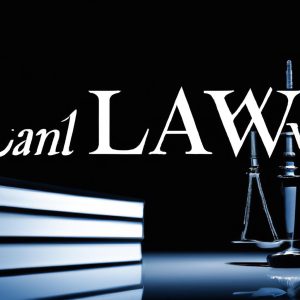As seasoned attorneys at Morgan Legal Group, situated in the bustling metropolis of New York City, we specialize in a myriad of legal services ranging from estate planning to probate, elder law, Wills, and trusts. In this article, we will delve into the intricate world of quit claim deed loopholes in the state of New York. Join us as we unravel the complexities surrounding this particular legal instrument and explore the potential pitfalls and advantages that come with its usage.
Understanding the Potential Risks of Using Quit Claim Deeds in New York Real Estate Transactions
When dealing with real estate transactions in New York, it is crucial to understand the potential risks associated with using quit claim deeds. While these deeds can be a quick and easy way to transfer property interests, they come with certain loopholes that buyers and sellers should be aware of.
One major risk of using a quit claim deed in New York is that it offers no warranties or guarantees regarding the property’s title. This means that the seller is not obligated to provide clear title or address any existing issues such as liens, encumbrances, or undisclosed heirs. Additionally, quit claim deeds do not protect the buyer if there are any defects in the title, leaving them vulnerable to potential legal disputes in the future.
Exploring Common Misconceptions Surrounding Quit Claim Deeds in New York
When it comes to quit claim deeds in New York, there are several common misconceptions that can lead to potential loopholes and legal issues. It is important for individuals to fully understand the implications of using a quit claim deed before proceeding with any real estate transaction. Below, we explore some of the most prevalent misconceptions surrounding quit claim deeds in New York:
- Myth #1: Quit claim deeds provide the same level of protection as warranty deeds.
- Myth #2: Quit claim deeds can be used to transfer ownership of a property without notifying other interested parties.
It is crucial for individuals to consult with a knowledgeable attorney before utilizing a quit claim deed to ensure that their interests are fully protected and that any potential loopholes are addressed. Understanding the nuances of New York real estate law is essential in avoiding costly legal complications down the road.
Navigating the Legal Implications of Quit Claim Deed Loopholes in New York
Navigating the legal landscape surrounding quit claim deed loopholes in New York can be a complex and daunting task. With the potential for loopholes to arise in the transfer of property ownership, it is crucial to understand the implications and consequences that may arise. One key aspect to consider is the potential for loopholes to be exploited by individuals seeking to manipulate property ownership to their advantage. By being aware of these loopholes and understanding how they can impact property transactions, individuals can better protect their interests and assets.
When dealing with quit claim deed loopholes in New York, it is essential to seek guidance from experienced legal professionals who specialize in real estate law. By working with knowledgeable attorneys, individuals can navigate the nuances of property transactions and ensure that their rights are protected throughout the process. With a thorough understanding of New York’s legal framework and the potential pitfalls that may arise with quit claim deeds, legal experts can provide valuable insights and guidance to help clients achieve their real estate goals. Trust the expertise of seasoned attorneys to help you navigate the legal implications of quit claim deed loopholes in New York and safeguard your property interests.
Recommendations for Safeguarding Your Real Estate Interests When Utilizing Quit Claim Deeds in New York
When utilizing quit claim deeds in New York, it is crucial to take certain precautions to safeguard your real estate interests. One important recommendation is to thoroughly research the property in question before transferring any interests. This includes checking the property’s title history, any existing liens or judgments, and any potential disputes or legal issues. By conducting proper due diligence, you can avoid any surprises or complications down the road.
Another crucial step is to consult with a qualified real estate attorney who is well-versed in New York real estate laws. An experienced attorney can review the quit claim deed, ensure that it is properly drafted and executed, and advise you on any potential risks or pitfalls. Additionally, they can help protect your interests by including specific clauses in the deed, such as warranties of title or indemnification provisions. By taking these precautions, you can minimize the chances of encountering legal issues or disputes related to the quit claim deed.
Q&A
Q: What is a quit claim deed and how does it work in New York?
A: A quit claim deed is a legal document used to transfer ownership of real estate from one party to another. In New York, it is commonly used in situations where the transfer of ownership is not based on a sale, such as gifting property or adding or removing a spouse’s name from the title.
Q: What are some common loopholes associated with quit claim deeds in New York?
A: Some common loopholes to be aware of include potential issues with undisclosed liens or mortgages on the property, disputes over ownership rights, or challenges to the validity of the original deed.
Q: How can one protect themselves from falling victim to quit claim deed loopholes in New York?
A: To protect oneself, it is important to conduct a thorough title search, review the property’s history, and consider consulting with a real estate attorney before entering into a quit claim deed agreement. Additionally, ensuring all parties involved are aware of the terms and implications of the transfer can help prevent any future disputes.
Q: Are there any specific regulations or laws in New York that address quit claim deed loopholes?
A: While New York does not have specific laws addressing quit claim deed loopholes, the state’s real estate laws provide protections against fraud and require full disclosure of any known issues with the property being transferred. It is important to follow proper procedures and protocols to ensure a smooth and legally binding transfer of ownership.
Closing Remarks
In conclusion, navigating the world of quit claim deed loopholes in New York can be a complex and challenging endeavor. It is important to be well-informed and seek professional guidance to ensure that your property transactions are conducted with full transparency and legality. By understanding the potential pitfalls and loopholes, you can protect yourself and your investments in the ever-evolving landscape of real estate law. Stay diligent, stay informed, and always proceed with caution. Happy property owning!






